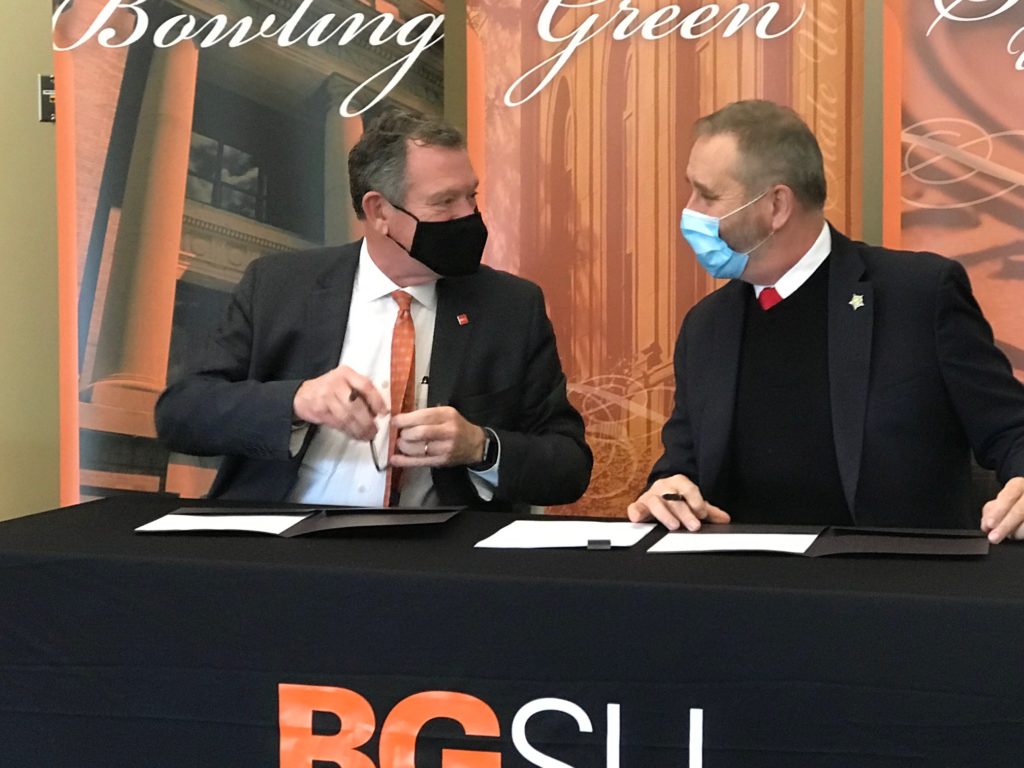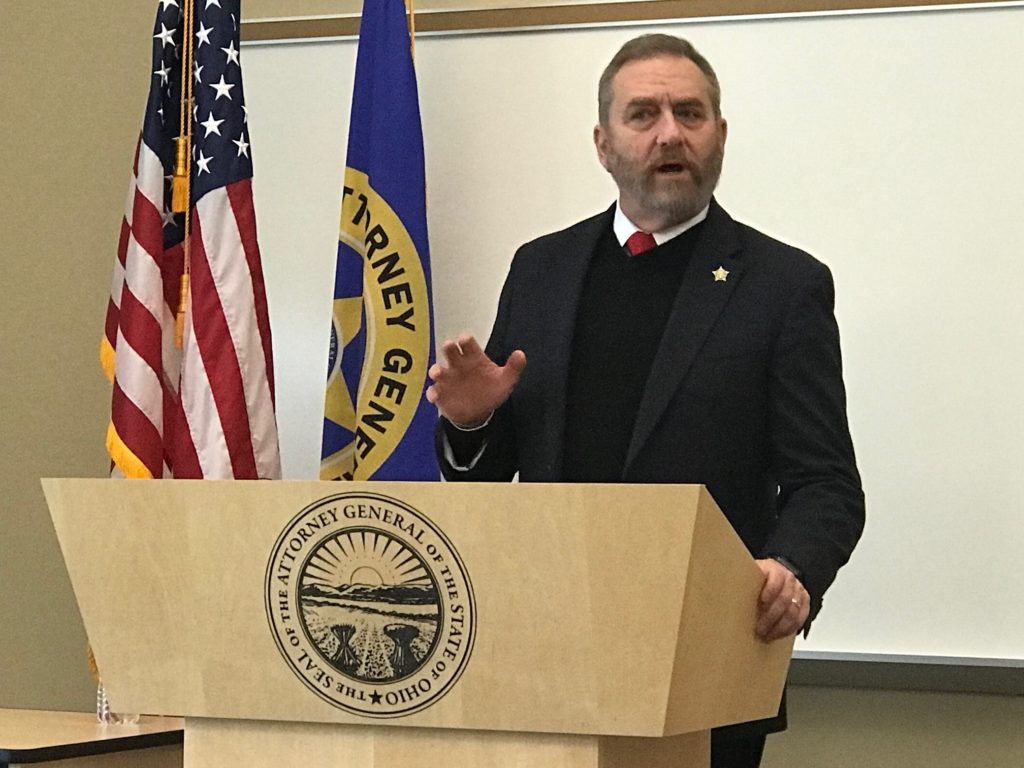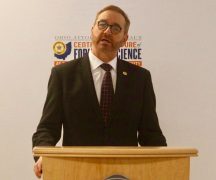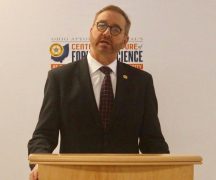By DAVID DUPONT
BG Independent News
Bowling Green State University has been selected to house the new Center for Justice Research.
Attorney General Dave Yost who spearheaded the creation of the center visited campus this morning (Nov. 10) to announce the creation of the center and sign the agreement with BGSU President Rodney Rogers.
BGSU earned the distinction through a competitive process. Associate Professor of Sociology John Boman submitted the winning proposal.

The center’s mission is to do directed research to answer a specific question.
“We will translate that research into something that’s concrete and meaningful to the people of the state of Ohio,” Boman said, “and we’ll develop policy and practical recommendations for Attorney General Yost’s office.”
This collaboration between researchers and government administrators is unique, he said.
The first issue the center will address is bail reform.

As a “constitutional conservative,” Yost said “I fully support the presumption of innocence.”
He continued: “Why are we holding particularly indigent people in custody for sometimes extended periods of time when they haven’t been convicted of anything and are presumed at law of being innocent?”
Yet, research shows “ a relatively small pool of people accounts for most of the violent crime in the community.”
Those two factors are in tension, he said.
The pandemic presented a “natural experiment.” In some communities, especially large urban areas, the guidelines for setting bail were loosened because of greater limits on keeping people locked up.
Comparing those people with those held the year before could provide insight, Yost said.
The center is being funded with $174,000 from the attorney general’s office. It will provide the grants, and partially pay Boman’s salary. Boman will spend 40 percent of his time as director of the center.
BGSU graduate students will also be involved in the center’s work.
Jon Sprague, director for science and research for the attorney general’s office and former director of the Center for the Future of Forensic Science at BGSU, reviewed the applications.
He said Boman’s proposal on how to run the center and how to reach out to other researchers stood out.
The lead researchers will all be from Ohio, Boman said.
The research has three distinct advantages: it will improve public safety and safety for law enforcement officers; it reduce the public stress of crime and the public health problems; and it is fiscally responsible.
BGSU President Rodney Rogers said the new center fit with the university’s vision of being “a public university for the public good.”
It is, he said, an outgrowth of the opening of the Bureau of Criminal Investigation lab on campus in 2014. The Center for the Future of Forensic Research grew from that project.
Yost said that the pandemic showed the importance of engaging science when making public policy.
It’s not a matter of trusting science, Yost said. “Science is a way of describing the world around us. It’s a way of describing what we can measure and observe and understand about the relationships between things and how they operate,” he said. “But science doesn’t tell us anything about policy tradeoffs. Policy requires evaluating many things about our society, about living together and how we’re going to expend limited resources, and how we are going to order relationships between each other and our institutions. … Science doesn’t drive those decisions; it informs them.”





